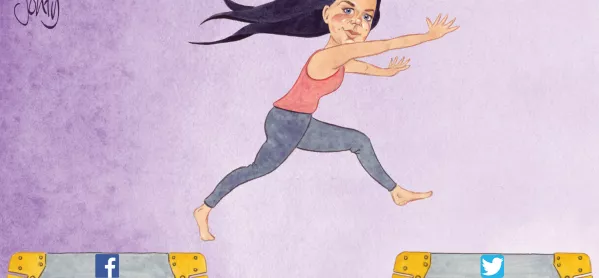I’ve been asked a few times to give some insight into how teachers use social media to engage with the teaching community. In many ways, it is a tale of two platforms: Twitter and Facebook. The distinction between the two is important to consider.
Twitter has always been the route through which I’ve connected with other teachers and people who work within education. When I started out, I protected my profile, which meant that only approved people could follow me and read my tweets. As I began to connect with more and more people, I realised that at the heart of Twitter was sharing and being able to retweet others. I made the decision to unprotect my profile and have never looked back since.
What I really like about Twitter is that everyone is there in the same virtual space. You can create lists of people that are related in some way, to help you filter tweets, but ultimately, everyone is sharing and that’s it. You don’t like them? Don’t follow them. You really don’t like them? Block them. There’s something about its simplicity that I think leads to the big discussions that take place on Twitter. It allows lots of people to wade in. You don’t have to be following people to interact with them on Twitter.
Facebook is a different ball game. Up until recently, it was really just a way for me to keep in touch with friends, see baby pictures and find out who had just got engaged. However, there are quite a few teacher groups on there, which I decided to join. The fact that you need to join groups to connect with people you’re not friends with is what is at the heart of the dynamic here. The discussions are more closed and you can be booted out of groups if people don’t like what you’re saying; this might be why debate doesn’t seem to happen so much, in my experience.
Lots of sharing goes on, but it’s more practical and comes off the back of individuals putting out requests for ideas of books relating to different topics and whatnot. While this does happen on Twitter, it seems that bigger-picture discussions are more common. Of course, I’ve not been part of every Facebook teacher group going, so it’s entirely possible that it happens in some of those, too.
The closed-group set-up on Facebook might also be what leads to some pretty personal posts being shared, such as grievances from teachers about their senior leadership team, or even stories about students with, in my opinion, too many personal details.
Both platforms obviously have their benefits. But bear in mind that it’s easy to forget that Facebook is not really private - nothing online is. On Twitter, everything is clearly public and that frames everything I share.
My advice? Try out different platforms and find what is right for you. You definitely get different experiences in different places.
Claire Lotriet is a teacher at Henwick Primary School in London. She tweets @OhLottie and blogs at clairelotriet.com




